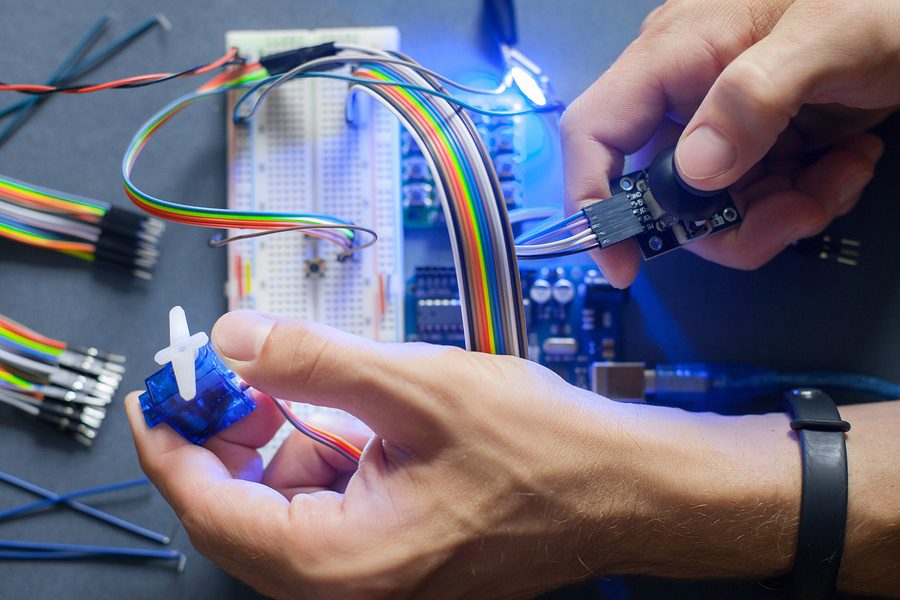Why Your Electronic Manufacturer Should Conduct Common Cable Testing

Much of what goes into the design and manufacture of quality electronic components revolve around testing – individual parts and the assembly itself, once completed. For the electrical connections that make up cables, harnesses, or any other wired assemblies, cable testing is performed to check for conformity to plans, quality, and functionality. An experienced turnkey electronic manufacturer can oversee your project from start to finish while performing all necessary tests along the way.
These undergo their own testing processes and requirements because, without proper electrical components, the assembly becomes useless. While all assemblies do not require the same level of certified quality, some level of dependability is required in all finished products.

In order to identify and fix cabling issues as early in the manufacturing process as possible, cable testers are used to automatically test for conformity, quality, and functionality. A range of tests can be used to make determinations for each. Below, we discuss some of the more common cable testing processes and the intended outcome of each.
Cable conformity means that the cabling matches the design plans. If cables are conforming, the connector pins, twisted pairs, and shielding are all in the correct places. Cable quality means all the connectors, insulations, and the cables work how they are supposed to work. Quality tests seek to root out damages, scratches, dust, and air where it should not be. Cable functionality is tested after conformity and quality to determine that the components will work in realistic conditions and still do what they are designed and manufactured to do.
Additionally, cable testing reduces the overall time required for testing and consequently makes the manufacturing process more efficient. An electronic manufacturer can detect problems early and fix them before the full product is manufactured. The last thing you want is to find out that the wiring in a completed project would never have passed cable testing.
 Types of Cable Testing
Types of Cable Testing
A range of cable testing processes can help determine if an electrical component meets the needs, specs, and certification required by the manufacturer or end-product. Point to point testing, high potential testing, measured charge testing, RF cable testing and complex cables pegboards all assist with identifying quality and reducing manufacturing time.
Point to Point Testing – In point to point testing, a charge is sent from one designated connector to another designated connector. The charge is sent and then measured. In this way, the point to point test confirms the functionality of the electrical connections.
Measured Charge Testing – In the measured charge test, similar to in point to point, a charge is sent through two specific connectors. In this case, voltage is also specified and measured at the endpoint to be sure the voltage remained the same from start to finish. This test also is ensuring functionality.
High Potential Testing – In a high potential test, cables are encapsulated in foam or another form of insulation and given a high charge, 5000 VAC, and 6000 VDC, for example. If the cable can withstand these voltages, it passes this quality test.
RF Cable Testing – In an RF cable test, the length of the voltage waves is measured. This is a performance test, return loss and voltage standing wave ratio are monitored. Fault locations and impendence changes and their causes are also noted.
Complex Cables Pegboards – Complex cables pegboards are used to keep everything organized during testing and assist in determining how well the wiring conforms to the design plans. Organized cables also assist in performing other cable testing processes and ensure accuracy throughout.
Cable Testing Applications
Cable testing is used in both production and maintenance of electrical components. Everything from consumer products to heavy machinery projects may involve cable testing. Aerospace satellites, airplanes, trains and subways, Army equipment, cell phones and microwaves all involve cable testing to ensure quality, conformity, and functionality before, during, and after manufacturing.
Cable Testing and Quality at Levison Enterprises
A major factor that can reduce cable testing problems is sourcing quality products and materials. This is an area of specialty for Levison Enterprises. We work with a reputable and robust network of suppliers and we know the provenance of the parts and supplies offered by our supply partners. Eliminating counterfeit parts has many advantages, but from the viewpoint of cable testing, real parts are important to improving the overall quality and functionality of electronic assemblies.
In addition to offering a range of cable testing options, we work closely with our manufacturing partners and our suppliers to obtain high-quality and ethically sourced parts. Combined, this produces fewer cable testing issues and a quicker manufacturing process for our partners.
Further, our cable testing and sourcing are underscored by our commitment to quality. This commitment is best summed up in the list of quality certifications that Levison Enterprises maintains with pride. Everything from procedures to individual staff training is carefully monitored, continuously improved, and regularly upgraded to ensure constant regulation and quality compliance.
Our certifications include AS9100C, NIST, and ISO 9001. We are ITAR registered and maintain IPC and J Standard certifications. While we believe in the quality set by all these standards, what we really aim for is excellent products for our partners.
Contact Levison Enterprises to discuss how our commitment to quality can improve your projects.